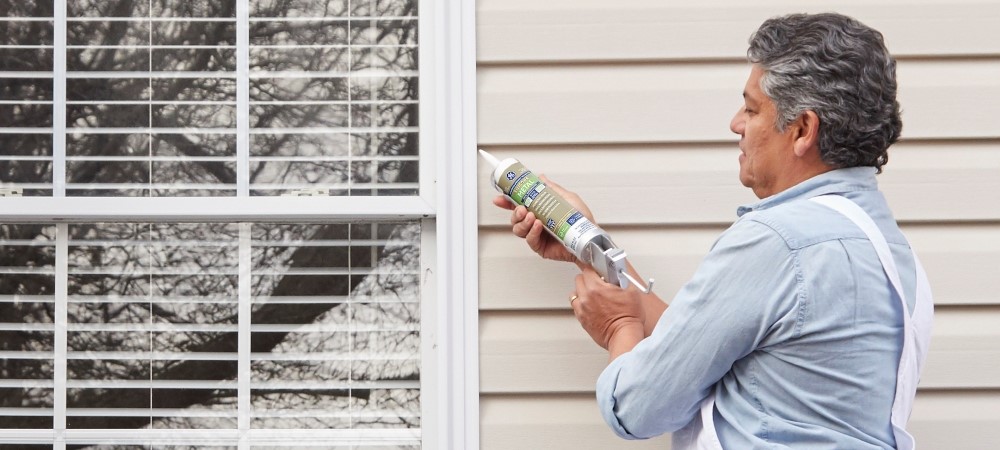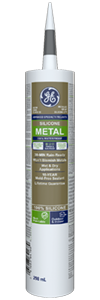Note: This DIY article is provided as a general guide only and is not intended to take the place of product-specific installation procedures; always follow applicable manufacturers’ instructions. Depending on your home’s age and condition, location within the home, and other potential factors, repairs and/or upgrades or other services may be necessary prior to the beginning and/or completion of your project that may involve the services of a home improvement professional. This article does not include advice pertaining to local building codes and/or any related inspections.
In a wide variety of industrial and residential applications, protecting metal surfaces from water damage and other moisture effects is an essential part of maintaining structural integrity and longevity. Waterproof sealants for metal surfaces play a vital role in preventing rust, corrosion, and other forms of water damage.
Types of waterproof sealants for metal
From automotive to construction and home maintenance, the right sealant can significantly extend the life of metal structures and equipment. However, selecting the best waterproof sealant for metal can be challenging due to the variety of options available. Understanding the differences between these sealants is a necessary first step for making informed decisions that meet your specific requirements. This guide explores different types of waterproof sealants suitable for metal and highlights their pros and cons to help you make the best choice for your projects.
For flexibility and durability, metallic silicone sealants are unrivaled in sealing metal surfaces. They offer exceptional resistance to weathering, UV light, and temperature extremes. Silicone sealants adhere well to metals and form strong, waterproof bonds that prevent moisture penetration and corrosion.
You can seal gaps, spacings, and various fittings made of metal with different base-material sealants. The best choice for any project will depend on climate, temperature extremes, intended use, and budget. Here are the most common types of waterproof sealants for metal.
-
Polyurethane sealants
With high ratings for adhesion and versatility, polyurethane sealants are a popular option for waterproofing metal surfaces. Polyurethane sealants provide excellent resistance to abrasion, chemicals, and physical impacts, making them suitable for many demanding environments.
Pros:
- Strong adhesion: Polyurethane sealants bond well with various surfaces, including metals.
- High resistance to abrasion and chemicals: These sealants can withstand harsh conditions, such as exposure to solvents and physical wear. For this reason, polyurethane is a common choice for industrial and automotive applications.
- Fast curing time: Polyurethane sealants typically cure quickly, minimizing downtime for project completion.
Cons:
- Low UV resistance: While polyurethane sealants are durable, they are more susceptible to UV degradation compared to materials like silicone. This reduces their longevity when exposed to direct sunlight.
- Potential for shrinkage: Over time, polyurethane sealants tend to shrink and compromise formerly tight seals.
-
Acrylic sealants
Acrylic sealants can be a practical choice for indoor metal surface applications. They are easy to apply, clean up with water, and are generally more cost-effective than polyurethane sealants.
Pros:
- Ease of application: Acrylic sealants are simple to apply and can be cleaned up with water.
- Paintable: You can paint over acrylic sealants, providing a seamless look for the whole installation.
- Cost-effective: Typically more affordable than polyurethane options, acrylic sealants are a good budget-friendly choice.
Cons:
- Lower durability: Acrylic sealants are not as durable as silicone or polyurethane and are less suitable for heavy-duty or outdoor applications.
- Poor UV resistance: They do not withstand prolonged exposure to sunlight well.
-
Butyl rubber sealants
Butyl rubber sealants exhibit high adhesion to metal surfaces and remain flexible over time. These sealants are ideal for applications requiring strong, long-lasting seals capable of withstanding weathering and chemical exposure. Butyl rubber sealants are typically used in roofing, automotive, and industrial settings.
Pros:
- Excellent adhesion: Butyl rubber sealants form strong bonds with metal surfaces and resist corrosion.
- Good resistance to weathering and chemicals: Butyl sealants can withstand harsh environmental conditions and exposure to chemicals — hydrocarbons, acids, and alkalis.
- Maintains flexibility: Unlike some sealants that can become brittle over time, butyl rubber remains flexible and can accommodate movement and temperature changes without cracking.
Cons:
- Messy application: Butyl rubber sealants have a thick, sticky consistency and the material tends to string and adhere to both tools and surfaces. This makes it more challenging to achieve a neat, professional-looking appearance.
- Limited colour options: Butyl sealants come in limited colour options and may be unsuitable for residential applications.
-
Silicone sealants
For flexibility and durability, metallic silicone sealants are unrivaled in sealing metal surfaces. They offer exceptional resistance to weathering, UV light, and extreme temperatures. Silicone sealants adhere well to metals and form strong, waterproof bonds that prevent moisture penetration and corrosion.
Pros:
- Unmatched flexibility and durability: Metallic silicone sealants maintain their elasticity and integrity over time — even under harsh conditions — making them ideal for metal surfaces that may expand and contract during changes in temperature and humidity.
- Excellent weather and UV resistance: Metal silicone sealants can withstand prolonged exposure to sunlight and adverse weather conditions without degrading.
- Excellent adhesion: They form strong bonds with metal surfaces and provide a reliable barrier against water infiltration.
Cons:
- High cost: Silicone sealants tend to be slightly more expensive than other options.
- Longer curing time: The curing process for silicone sealants can last up to 48 hours.
Choosing the best silicone sealant for metal
When selecting a silicone sealant for metal surfaces, homeowners aiming for professional-grade results will likely find silicone sealants like our Metal Silicone 2® Sealant to be the most appealing option. Their high flexibility and durability ensure that metal joints and seams remain intact and watertight — even under highly variable temperatures and environmental conditions. Silicone sealants’ superior resistance to UV light and weathering means they won’t degrade or discolour over time.
For DIY enthusiasts, the excellent adhesion properties of silicone sealants provide a strong, reliable bond that ensures a lasting seal and reduces the need for frequent maintenance. Additionally, silicone sealants are easy to apply with a caulking gun and their smooth finish helps achieve a neat, professional look.
To get GE products for your home improvement project, visit these fine retailers.


